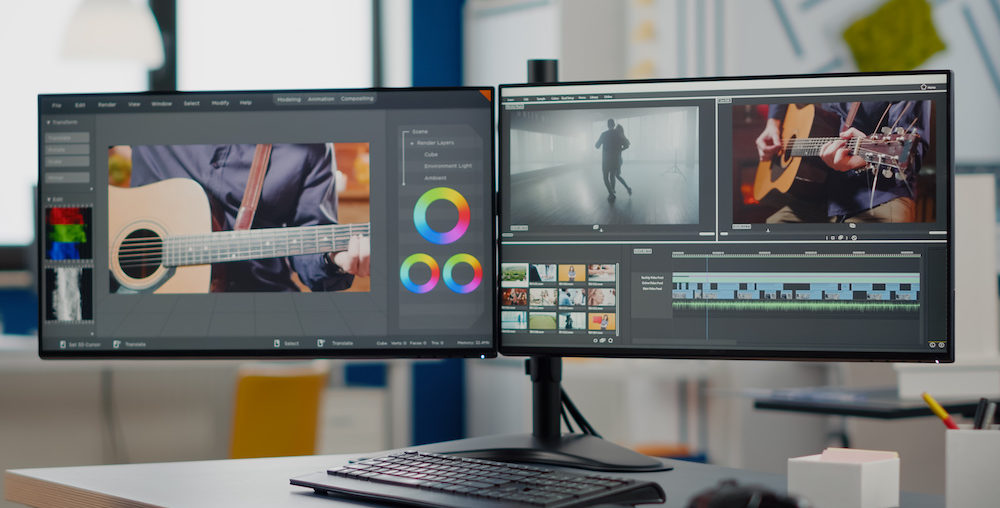Is YouTube taking forever to process your video? Are you interested in learning ways how to possibly speed things up?
We feel you; we’ve mastered the art of doing other tasks just to ensure we’re not wasting time waiting for the process to finish.
Does this mean that there’s no hope but wait? No, not at all.
Over the years, we uncovered various hacks一tried and tested techniques that we’ll now be passing on to you.
Let’s learn how long does it take YouTube to process a video and ways to hasten things up significantly.
What Is Video Processing?
We are very fortunate to live at a time when almost every digital device can take photos and videos now but have you ever wondered how these are all possible?
How is it possible for our devices of different types, models, and brands, to play each other’s videos when the programs and formats involved in making them vary greatly?
We can all thank video processing, the method that software and platforms use to make each video file playable on the device used. For YouTube, in particular, the video will be compressed and re-encoded into files that will meet the streaming platform’s universal standard.
In a nutshell, it’s a process ensuring that regardless of how the file was created, YouTube users can play that file on any device and in multiple qualities if needed.
How Long Does It Take to Process a YouTube Video: The Different Factors
One of the reasons a lot of people wonder how long does it take to process a video on YouTube is because they do tend to vary. Some YouTubers claim that it takes them several hours to, sometimes, even a full day.
Meanwhile, some consider it as a mere and momentary inconvenience. Well, different contributing factors affect YouTube’s processing speed, such as the following:
Video Quality
The first factor that can impact video processing speed is the video’s quality, further broken down into three subfactors: resolution, bit rate, and frame rate.
Resolution refers to the number of pixels in the different video dimensions. The higher the pixel, the better the resolution, and thus, the video quality will be.
You are probably familiar with the two most common resolution formats available: standard definition (or SD) and high definition (or HD).
Bitrate is the amount of data needed to encode and process your video within a set duration. Like resolution, the higher the bitrate, the better video quality you’ll have.
Finally, there’s the frame rate. As the name suggests, it is essentially the number of still images required to play a video. Think of how animation is done.
The more frames you have, the smoother and better the quality of your video.
These three subfactors ensure that your videos have crisp and consistent quality. However, the higher the resolution, bitrate, and frame rate will also mean a slower processing time.
File Size
The video quality will also affect the file size. The video length can also determine it. Keep in mind that YouTube processes videos per minute.
Thus, the more minutes a video has, the longer it will take for the platform to process it. Not to mention that a larger file size will also take a longer upload time.
File Format
As stated, YouTube processes videos to meet their standards and ensure they can be played through any device. That said, there are definitely video formats that the platform favors over others.
For instance, an MP4 video format takes faster to process, while the codec version H.625 is not supported yet at the time of writing. It is definitely beneficial to consider the file type if you want a video to finish processing faster.
Network Connection
Finally, don’t forget about your current internet network connection. After all, your current internet speed will also determine your upload speed.
This also affects how long it takes YouTube to process a video.
An unstable internet connection will definitely result in a longer processing time, while having a more stable connection will result in a faster processing speed.
By the way, some YouTube content creators claim that there is the right time of day to upload and process videos. Doing so during off-peak hours can potentially result in faster processing speeds.
In our personal experience, we didn’t really notice a significant difference in the rate it takes for a video to finish processing even during the busiest times of the day, as long as we have fast network speeds.
How Long Does It Take YouTube to Process a Video?
As you see, various factors affect the speed it takes for a video to finish processing. Hence, the answer will largely vary. Still, it is possible to determine an average.
Those who want to determine how long does it take to process a YouTube video can start by taking note of the average length of videos. Most creators upload a 20-minute YouTube video since viewers deem it long enough to provide substantial, quality information.
Those with fast internet speeds take 30 seconds to process a minute of a high-resolution video. Meanwhile, those with slower connections will need at least a minute to process a minute of an HD video file.
Using the slower speed as a reference (to allow us some wiggle time), it will take 20 minutes to finish processing an average-length HD video on YouTube.
If this video length still takes more than 20 minutes to process, you might want to consider uploading a shorter one; a 10-minute video is a good length.
How to Make YouTube Video Processing Faster
Uploading a 60-minute video shouldn’t take the whole day. Below are some tips that can hasten the processing of high-definition videos.
Free up Your RAM
Google Chrome, Mozilla Firefox, and other modern browsers offer the convenience of multiple tabs. Unfortunately, it can also eat up your computer’s RAM.
Thus, it is ideal for freeing up those precious resources by using a task manager to close unnecessary tabs. You can also do the same with your computer’s background processes.
Turn off Your VPN
Another modern-day convenience that can hamper your video processing speeds is your VPN. The filtering technology it uses to secure your connection also places the same filters between you and YouTube’s servers.
Optimize Your Videos
There are various ways to optimize your video files. The easiest way is to play around with the aspects of your video quality until you find the right balance between keeping your file’s quality and small size.
Another way is to maximize every minute of your video by keeping your content concise. Remove redundant and unnecessary parts. You can even hire a writer to make your scripts less wordy.
Successfully Processing YouTube Videos
Since the answer to “How long does it take to process a video on YouTube?” depends on varying factors, make sure you understand each of them and the steps to minimize the common hindrances. The guide above is a good place to start.
By doing so, we believe you can increase YouTube’s processing speeds significantly. Hopefully, the next time you process your gameplay videos and hour-long 1080p Livestream videos, they won’t take several hours or even a whole day.
YouTube Video Processing FAQs
1. Why is it taking so long to process my video on YouTube?
As mentioned above, different factors can affect the platform’s video processing time.
2. How long does a 30-minute video take to process on YouTube?
With an average internet connection speed, it could take 15 to 30 minutes to process a video this long.
3. How long does a 2-hour video take to process on YouTube?
It could take an hour or two to process a video this long with an average internet connection speed.
4. How long does a 20-minute video take to process on YouTube?
As mentioned above, a video of this length can take 10 to 20 minutes to process.
5. Why is my YouTube video stuck at 0 processing?
This means that video processing has failed due to several reasons. It can include an unsupported file format, poor internet connection, and even YouTube being under maintenance.



